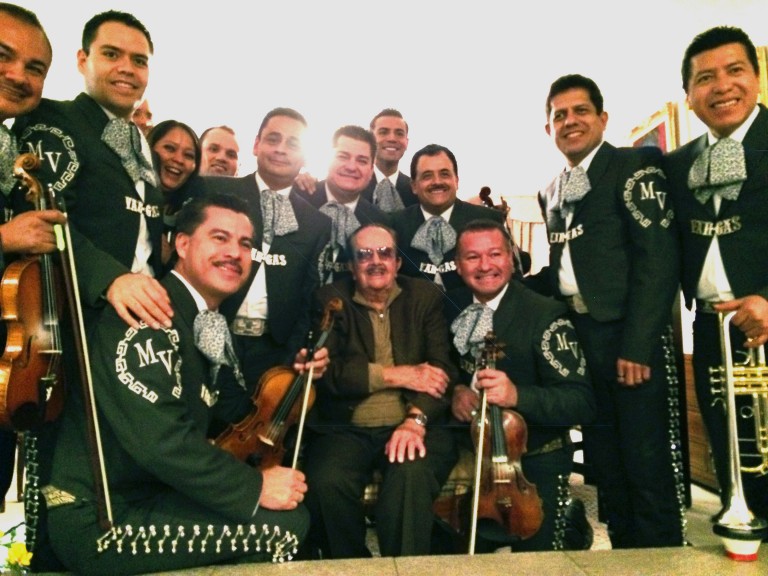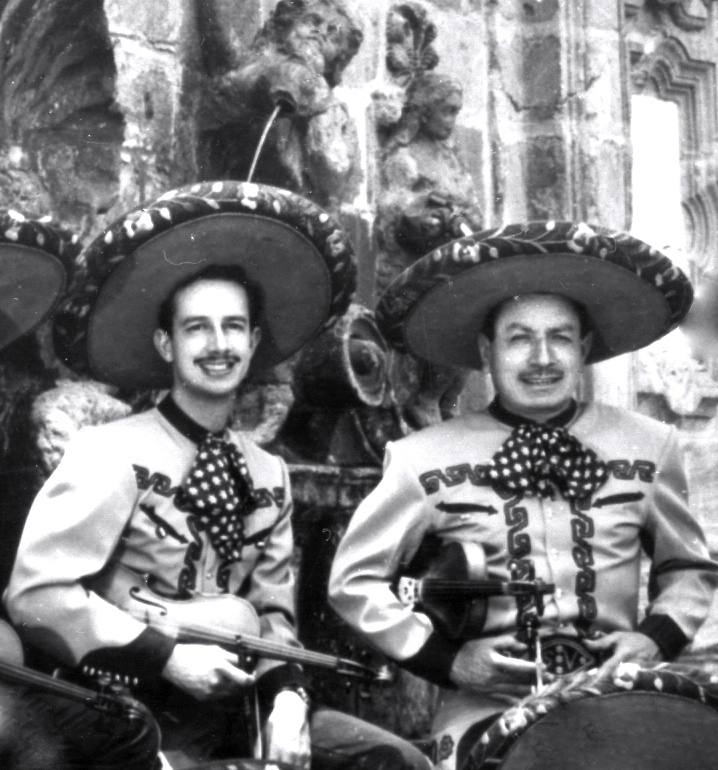Maestro Rubén Fuentes Turns 90
In all genres of music, we always find talented people behind the scenes who are far more influential than they are famous. In jazz and R&B, think Quincy Jones. In the case of The Beatles, think George Martin.
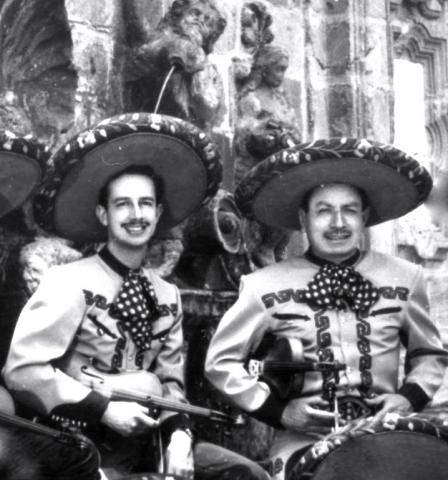 And when it comes to Mexican music, think Rubén Fuentes, the composer, arranger, and producer, who over the course of a half century left his unmistakable stamp on Mexico’s most emblematic pop music style, the mariachi. Though he has worked with the biggest names in the field and has written some of the genre’s best-known songs, even the most ardent mariachi fans may not recognize Fuentes’s name.
And when it comes to Mexican music, think Rubén Fuentes, the composer, arranger, and producer, who over the course of a half century left his unmistakable stamp on Mexico’s most emblematic pop music style, the mariachi. Though he has worked with the biggest names in the field and has written some of the genre’s best-known songs, even the most ardent mariachi fans may not recognize Fuentes’s name.Fuentes himself may be to blame for his own low profile. He tends to avoid the spotlight and notoriously shuns interviews, according to mariachi musician and historian Jonathan Clark, a contributor to this site. The maestro can be curt, verging on anti-social. When famed mariachi director Nati Cano, of the Los Angeles-based Los Camperos, organized a concert in tribute to Fuentes at UCLA some years back, Clark recalls, the guest of honor did not attend.
While he may not have the household name of artists with whom he has worked – legendary figures such as Jose Alfredo Jimenez and Miguel Aceves Mejía, for example – Fuentes has an immense reputation in the recording industry. He is a musician’s musician.
“He’s definitely a genius,” Clark told me recently. “In my opinion, he is the most important musical figure in the entire history of mariachi music.”
Last month, Fuentes celebrated his 90th birthday at his home in Mexico City, surrounded by friends, well-wishers and, of course, a houseful of musicians, Clark included. Playing at the party was none other than the Mariachi Vargas de Tecalitlán, the fabled ensemble that Fuentes has now worked with steadily for 72 years. He joined as a violinist in 1944 and is now the group’s general director.
And he’s still writing the band’s arrangements, like the complex and unusual piece, a poem set to music, which made its debut at his party. The performance of that song was the icing on the cake of this birthday celebration.
“The highlight of the evening was the world premiere of maestro Fuentes’ latest composition, an unorthodox canción ranchera titled ‘El Amor Tiene Tres Tiempos,’ with lyrics by Irma Cue,” Clarke writes in a blog for the website MariachiMusic.com. “The coauthor, who was a guest that night, was elated to hear her free verse poem so masterfully set to music and performed.”
Now in its sixth incarnation, Mariachi Vargas started work on a new studio album this month (March). The album will include the new song, which was a challenge to arrange musically because the lyrics are written in free verse.
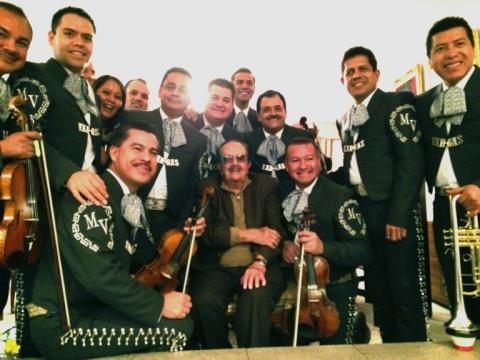 “I recently had the opportunity to watch the maestro prepare the score for ‘El Amor Tiene Tres Tiempos’ with his copyist,” recalls Clark. “His piano playing is a little rusty these days, and his music handwriting isn't quite as steady as it used to be, but I’m happy to say that the genius that earned him the reputation of being the most important composer-arranger in the history of mariachi music is still very much intact. And his attention to detail is second to none."
“I recently had the opportunity to watch the maestro prepare the score for ‘El Amor Tiene Tres Tiempos’ with his copyist,” recalls Clark. “His piano playing is a little rusty these days, and his music handwriting isn't quite as steady as it used to be, but I’m happy to say that the genius that earned him the reputation of being the most important composer-arranger in the history of mariachi music is still very much intact. And his attention to detail is second to none."Somewhat surprisingly, a search for the musician’s work in the Frontera Collection does not yielded as many recordings as one might expect, considering his volume of work over so many decades with so many top stars. That may be partly a function of the way songs are credited. All 219 of his compositions in the archive are credited to Fuentes along with one of many co-writers. Of those, 44 are by the song-writing duo of Vargas-Fuentes, referring to his long-time collaborator and mariachi founder Silvestre Vargas. Complete results appear by entering last name, first initial: Vargas, S. or Fuentes, R.)
As usual, producer and arranger credits do not reliably appear on record labels, especially 78-rpm and 45-rpm discs. Fuentes does get producer credit on the mariachi LP that is perhaps best known by North American music fans, Linda Ronstadt's Grammy-winning “Canciones de Mi Padre.”
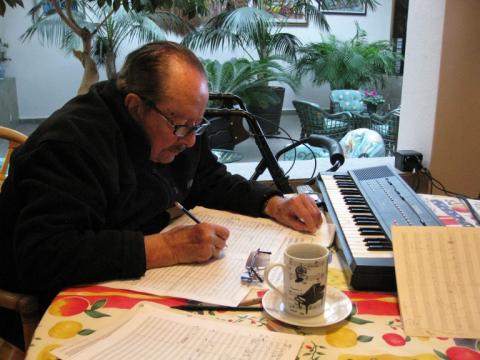 In the music industry, there is a well-known controversy that Fuentes allegedly took credit for other people’s work. That issue will be explored in a full bio of the musician, coming soon..
In the music industry, there is a well-known controversy that Fuentes allegedly took credit for other people’s work. That issue will be explored in a full bio of the musician, coming soon.. Meanwhile, says Clark, there is no doubt about the maestro’s lifelong contribution in “rescuing, arranging, and popularizing” what is considered Mexico’s most important folk music tradition.
--Agustín Gurza
Tags
Images

